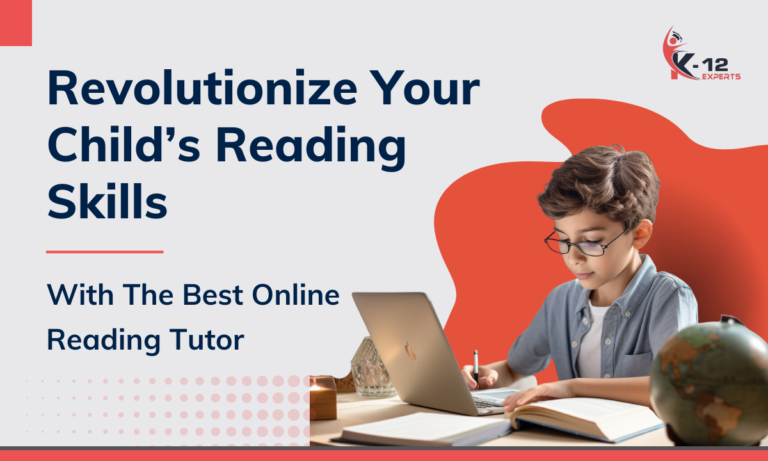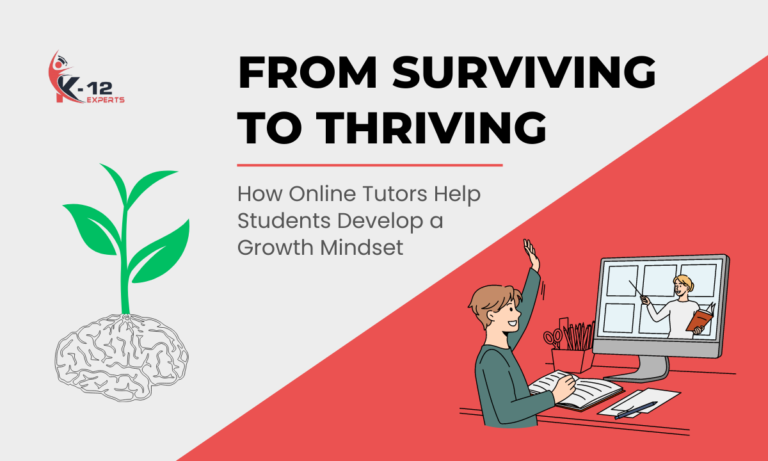Understanding and addressing your exceptional online students’ specific requirements is challenging but rewarding. This piece discusses how you can adapt your digital tutoring methods for students with ADHD, autism, and learning disabilities.
Let’s uncover fresh approaches to foster inclusive online learning environments where every student can flourish.
Understanding Exceptional Students
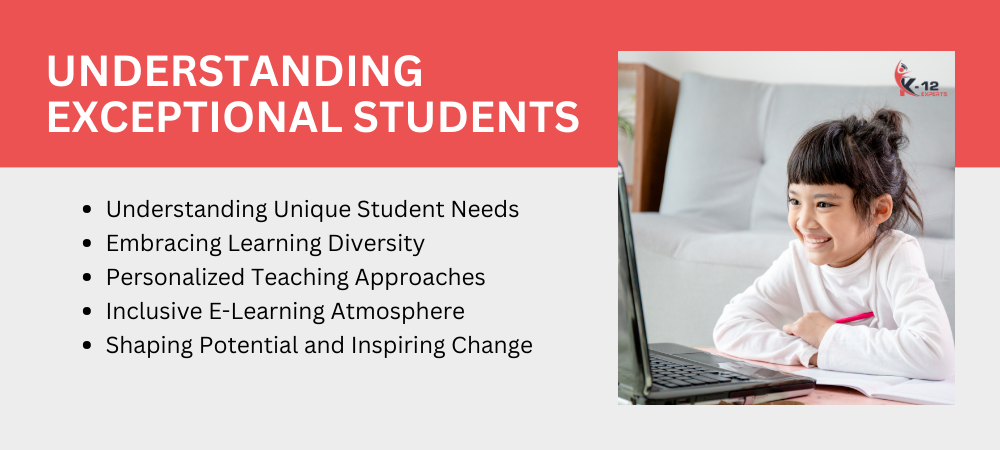
As an online tutor, it’s pretty crucial to grasp the unique needs and talents of exceptional students for their educational success. Think about it like tuning into a radio channel called ‘Exceptional Students Traits’ – it helps ensure that everyone gets included in the E-Learning process.
Every student is unique, with their own strengths, learning styles, and areas where they need a little push. Some might be naturally gifted, have learning disabilities, or come from a wide range of cultural backgrounds. Embrace these differences not as obstacles but as chances to come up with creative, personalized teaching methods. This mindset helps create an inclusive e-learning atmosphere where everyone gets a chance to shine.
You’re not just passing on information here; you’re helping to shape potential and inspire change. With a kind heart and a well-informed approach, you’re making education more accessible, engaging, and meaningful.
But remember, this is just the starting point. Let’s now dive into customizing online teaching strategies.
Tailoring Online Teaching Strategies
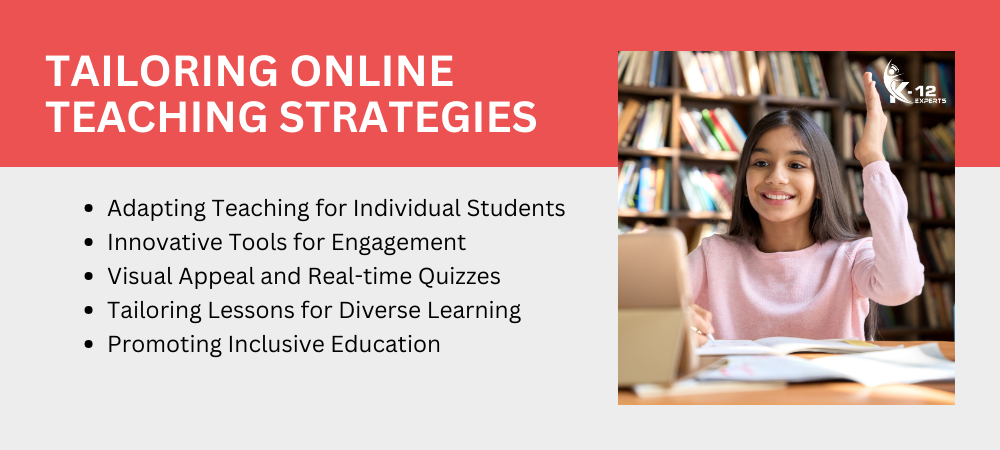
Considering every student’s uniqueness is crucial when adapting your online teaching strategies. These should cater to each learner’s particular needs and abilities.
Innovative tools like interactive platforms offer engaging teaching methods. For example, using interactive whiteboards can make the learning space visually appealing, while real-time quizzes can boost student participation and feedback.
Tailoring lessons to each student’s distinct learning styles and levels can make the learning environment more inclusive and effective. Innovation is key in this journey to inclusive education.
Let’s now delve into how these strategies can be applied in virtual classrooms to accommodate students with ADHD.
Accommodating ADHD in Virtual Classrooms
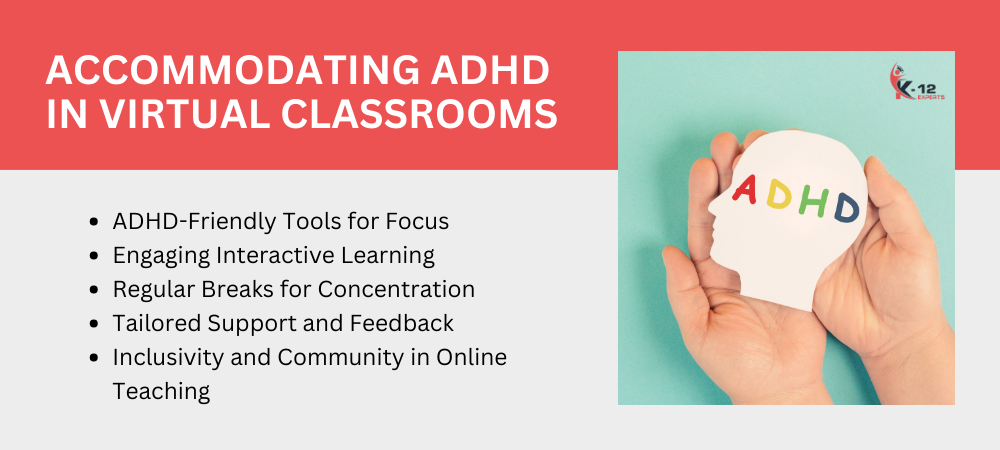
As we press on in this digital age, modifying your online teaching style to suit students with ADHD can help foster a compelling and interactive virtual classroom. Tools designed for these students, like timers and visual aids, can be incredibly beneficial. Try these four tips:
- Firstly, use tools designed with ADHD students in mind to enhance their focus.
- Secondly, involve them in interactive tasks to keep them engaged in the learning process.
- Thirdly, allow regular breaks to help them reset their concentration.
- Lastly, tailor your support and feedback to each student’s particular needs.
These steps won’t only make your online platform more inclusive but also instill a sense of community among your students.
Now, let’s turn our focus to strategies for accommodating students with autism in virtual classrooms.
Autism-friendly Online Learning Approaches
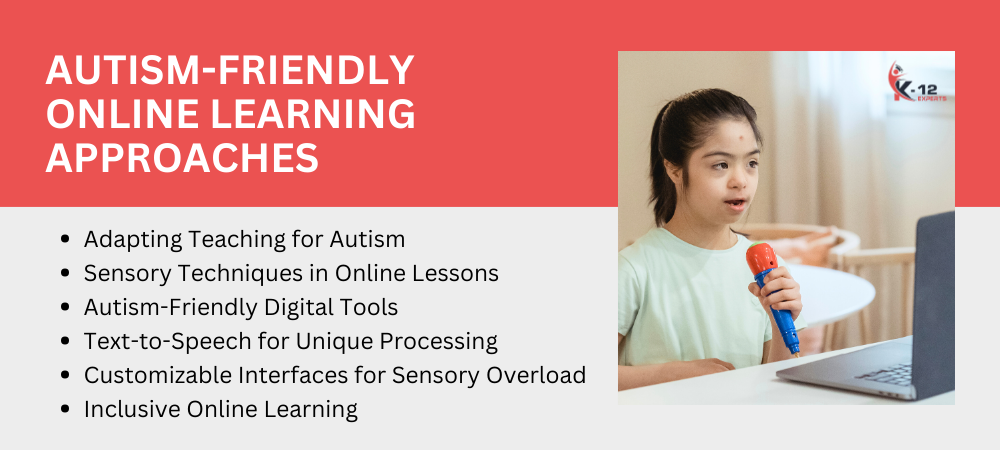
Just as you’ve adjusted your teaching methods for ADHD students, it’s vital to tweak your strategy for those with autism.
Integrate sensory techniques into online lessons for a better impact. Using engaging yet non-overwhelming visuals and interactive components could be beneficial.
Technology adaptation, like autism-friendly digital tools, can improve learning results. For example, text-to-speech software offers a unique information processing method. Also, customizable interfaces let students manage their surroundings, thus lessening sensory overload.
Essentially, it’s about making online learning a safe haven for everyone. As you keep evolving your teaching style, it becomes increasingly inclusive.
Now, let’s delve into how to assist students with learning disabilities.
Supporting Students With Learning Disabilities
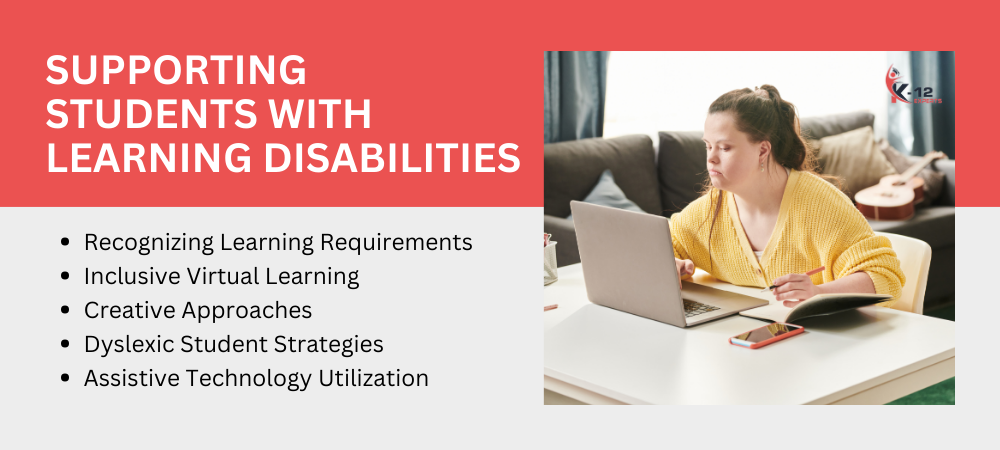
Recognizing and catering to the unique learning requirements of students with learning disabilities is the key to fostering an inclusive and supportive virtual learning space. The process requires a blend of personalization and creative thinking.
Here’s a quick rundown of approaches you could adopt:
For students with Dyslexia, you could incorporate multi-sensory teaching methods, offer text-to-speech features, and allow additional time for assignments. Sensory integration techniques could include movement breaks, the use of fidget tools, and a serene digital learning environment. Make the most of assistive technology tools, like speech recognition apps or digital note-taking software, to tailor the learning experience. Encourage self-advocacy by teaching students to express their needs effectively.
Frequently Asked Questions
What Are the Necessary Technical Requirements for an Exceptional Student to Participate in Online Tutoring?
In order to engage effectively in online tutoring, a standout student would require a stable internet connection and a gadget equipped with a camera and microphone. They may also need to make use of interactive online tools for real-time sessions, as well as any additional tech support that caters to their individual requirements. The goal is to ensure a smooth, uninterrupted learning journey.
How Do Online Tutors Handle Language Barriers or Communication Difficulties With Exceptional Students?
Online tutors handle language barriers or communication issues with special students by applying cultural understanding and flexible strategies. They modify their teaching approaches, use visual aids, and employ translation tools to guarantee effective communication.
Are There Any Additional Costs Involved in Getting Specialized Online Tutoring for Exceptional Students?
Yes, sometimes the prices for specialized online tutoring can be slightly higher. However, don’t worry; many tutoring services provide financial assistance. The key is to look around and find the right fit, as most tutors are dedicated to making education reachable for everyone.
How Do Online Tutors Ensure the Privacy and Safety of Exceptional Students During Online Tutoring Sessions?
Online tutors go all out to keep you safe. They use protected platforms and put in place methods to confirm student identities. These precautions are there to guard your privacy throughout your tailored online learning sessions.
How Can Parents or Guardians Monitor the Progress of Exceptional Students During These Online Tutoring Sessions?
As a parent or guardian, it’s easy to keep tabs on your exceptional child’s advancement with online tutoring. Tutors commonly share evaluations and comments, allowing you to witness their development directly and confirm that their unique requirements are addressed appropriately.
Conclusion
Online tutors are doing an exceptional job at tailoring their strategies to fit the needs of students with special requirements. They’ve successfully created an inclusive environment in virtual classrooms for kids with ADHD and Autism.
It’s worth noting that a whopping 70% of students with learning disabilities have reported better results with tailored online tutoring. This just goes to show how impactful these customized learning accommodations can be.
They’re not just feasible, they’re truly transforming the learning experience for everyone.


